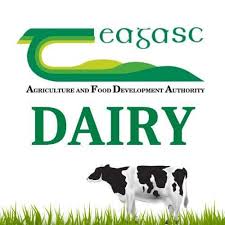Deadline: 30 June 2025
Background
Non-traditional beef sources are a very relevant share of the food industry in Ireland; however, these breed are perceived as a low quality meat with low acceptance among consumers. The use of dry-aging is becoming more popular, and more appreciated by meat eaters, who recognise the distinctive flavour and aroma that this method imparts to the final product. Therefore, dry-aging may be a tool to add value to dairy beef. Also, dry aging is time consuming, and the use of emerging technologies could be of help to accelerate the process, making this process more sustainable and economically viable.
The methodologies employed in this project are widely recognized and utilized across the scientific community for analysing meat quality traits. Metabolomic/peptidomic, sensory panels and flavour chemistry techniques represent cutting-edge approaches that are particularly valuable for investigating fresh meat and comparing product quality outcomes. This project will explore the physico-chemical and molecular properties that drive the technological and sensory characteristics of the dry-aged beef process. On top of that well-stablished methods will be applied to understand the changes in quality, such as: colour, TBARS, proximate analysis, fatty acid profile, shear force, etc.
The PhD candidate recruited will be part of a multidisciplinary team focusing on the development of innovative dry-aging protocols for non-traditional beef (dairy beef, cull cows, etc.) to increase the diversity of signature Irish value-added products on the market and increase the acceptability and overall quality of these products.
The student will conduct a research to advance our understanding of meat quality, particularly in relation to non-traditional beef sources like dairy beef. By integrating cutting-edge metabolomics and flavour chemistry methodologies, the research will provide new insights into the biochemical and molecular processes that influence the
sensory and technological attributes of dry-aged beef. This could lead to the development of more accurate predictive models for meat quality, improving the precision of quality assessments in the industry. Additionally, the use of emerging processing tools will be explored to determine their impact on dry-aged beef eating quality and processing parameters. Advanced data analysis (bioinformatics) will be a main aspect of this research work, since it is expected to create extensive data bases for both metabolite and volatile compounds.
The student will be part of a multidisciplinary team covering areas such as cutting-edge chromatographic and spectrometric technologies, biochemistry, sensory science, emerging processing technologies, microbiology and meat science. By this project we are aiming to answer the next research questions:
- Is it possible to apply dry-aging technology to enhance the eating quality and the consumer acceptability of dairy beef?
- What is the impact of emerging processing technologies on the final eating quality of dry-aged beef?
- What is the role of microorganisms on developing dry-aged flavour, aroma and tender meat?
- Can -omic technologies be useful to describe the dry-aging process aiming to optimize the aging time?
II. Requirements
- Applicants should have a good primary degree (First or Upper Second Class Honours) in a relevant area (Food Science, Food Technology, etc.) and preferably (not mandatory) a M.Sc. in an appropriate discipline (Food Science, New Product Development, etc.).
- The successful candidate should be highly self-motivated and open to a multi-disciplinary project with extensive inter-departmental and industry interaction.
- The minimum level required for research programmes is International English Language Testing System (IELTS) 6.0, or equivalent, for the overall average score and a score not lower than 5.5 in each category.
III. Award
- The schoarship funding is €31,000 per annum and includes University fees of up to a maximum of €6,000 per annum and is tenable for 4 years.
IV. Application Procedure
- Submit an electronic copy of Curriculum Vitae, a letter of interest, copies of relevant degree transcripts and the names and contact details of two academic referees simultaneously to: Dr Carlos Álvarez ([email protected] ) and Prof. Jesús Frías ([email protected] )
- For Further Information , please, contact:
- Dr Carlos Álvarez, Teagasc Food Research Centre, Ashtown, Dublin 15, Republic of Ireland, [email protected] or
- Prof. Jesús Frías, Sustainability and Health Research Hub Country, Technological University Dublin, [email protected]
- Closing date 30th of June 2025. Expected starting date September/October 2025
